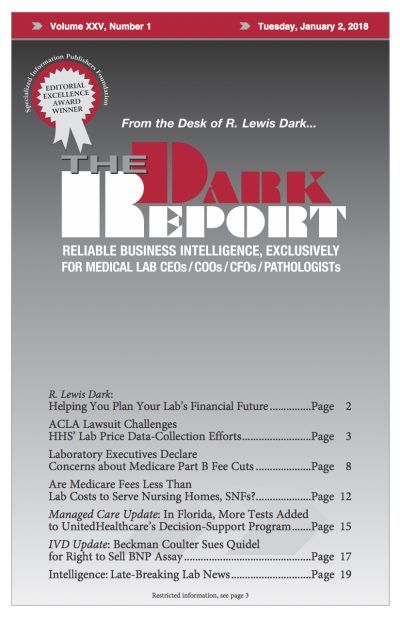THERE IS AN INTERESTING COURT FIGHT UNFOLDING between Beckman Coulter Corporation and Quidel over the rights to sell a B-type natriuretic peptide (BNP) assay. The lawsuit is a consequence of Abbott Laboratories’ acquisition of Alere, Inc., last fall. With that acquisition, Abbott Laboratories became the world’s largest manufacturer of point-of-care (POCT) lab tests. But federal …
Beckman Coulter Sues Quidel for Right to Sell BNP Assay Read More »
To access this post, you must purchase The Dark Report.


